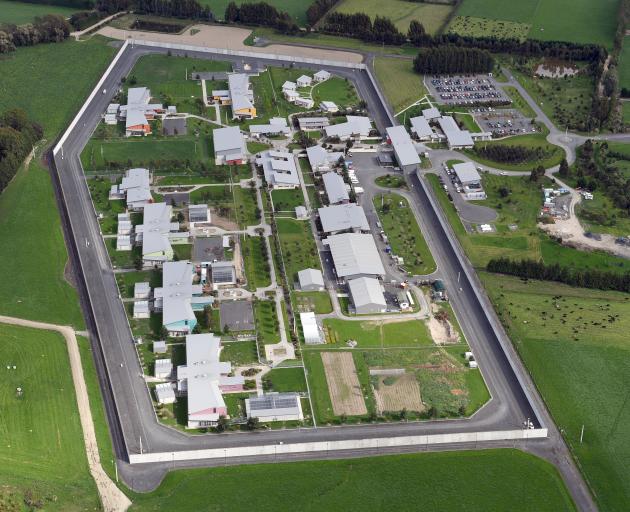
The 33-page analysis released this week found the Milburn prison was running at close to capacity and double-bunked, and it was sometimes difficult to find appropriate accommodation for all prisoners.
Despite that, and a slew of other shortcomings, Corrections chief inspector Janis Adair said the report demonstrated OCF was, in most respects, "working effectively".
Last month, Clutha Mayor Bryan Cadogan raised concerns about North Island gang members, who had served time at the prison, settling in the South.
The 11 men were contributing, he said, to the "methamphetamine plague" and crime wave sweeping the region.
Corrections' review of OCF, which took place in March last year and had inspectors interview 35 prisoners, found problems with transfers.
Five of the men they spoke to had come from elsewhere and all but one said they had received 24 hours' notice or less before their move.
OCF's acting director at the time confirmed one inmate had arrived without release papers and highlighted two other transfers that had "caused difficulty".
Another prisoner had been transferred to OCF four days before his first Parole Board hearing, meaning prison staff could not prepare him, and one man came from Christchurch Men's Prison midway through an intensive counselling programme, which meant he had to start therapy again.
"The prison faced challenges in accommodating all prisoners while keeping different classifications and categories of prisoners apart," the review said.
"The transfers interrupted rehabilitation and treatment programmes, cut off some prisoners from contact with families, and made high security units more challenging to manage."
Inmates in the high-security unit "were generally kept safe from violence and intimidation, although there was some evidence of intimidation and gang-related tensions", it said.
The inspection found those prisoners had "very few opportunities to engage in constructive out-of-cell activities such as rehabilitation programmes and training courses".
Low-medium security units and the self-care unit received favourable reviews, and prisoners there were grateful for the rehabilitative options, particularly those in the drug treatment unit.
However, OCF's provision of healthcare - both mental and physical - was found wanting.
"Growth in the prisoner population and the high number of transfers in the months prior to our inspection had placed pressure on staffing and resources which could have compromised the standard or timeliness of care. The health centre's medications room was not fit for purpose."
During the inspection, the at-risk unit was being used to house prisoners not at risk of self-harm.
Some prisoners with "significant and enduring mental health needs" were being managed in the prison environment due to a lack of forensic inpatient beds.
Corrections chief inspector Janis Adair said inspectors would continue to monitor progress at OCF and report to her.
"I am confident this will provide assurance that any shortcomings will be identified and addressed at pace, and that examples of good practice will be shared so that other prisons can follow."
Corrections chief custodial officer Neil Beales said things had eased since the report was compiled.
Prison problems
- Prisoners transferred with less than 24 hours’ notice.
- Transferred prisoner arrived without release papers.
- Prisoner had to start rehab course again after transfer.
- Inductions for prisoners in high-security unit not always completed.
- Evidence of intimidation and gang-related tensions.
- Some staff did not have on-body cameras ready for use.
- "Very few opportunities to engage in constructive out-of-cell activities" for HSU.
- Health Centre’s medications room not fit for purpose.












